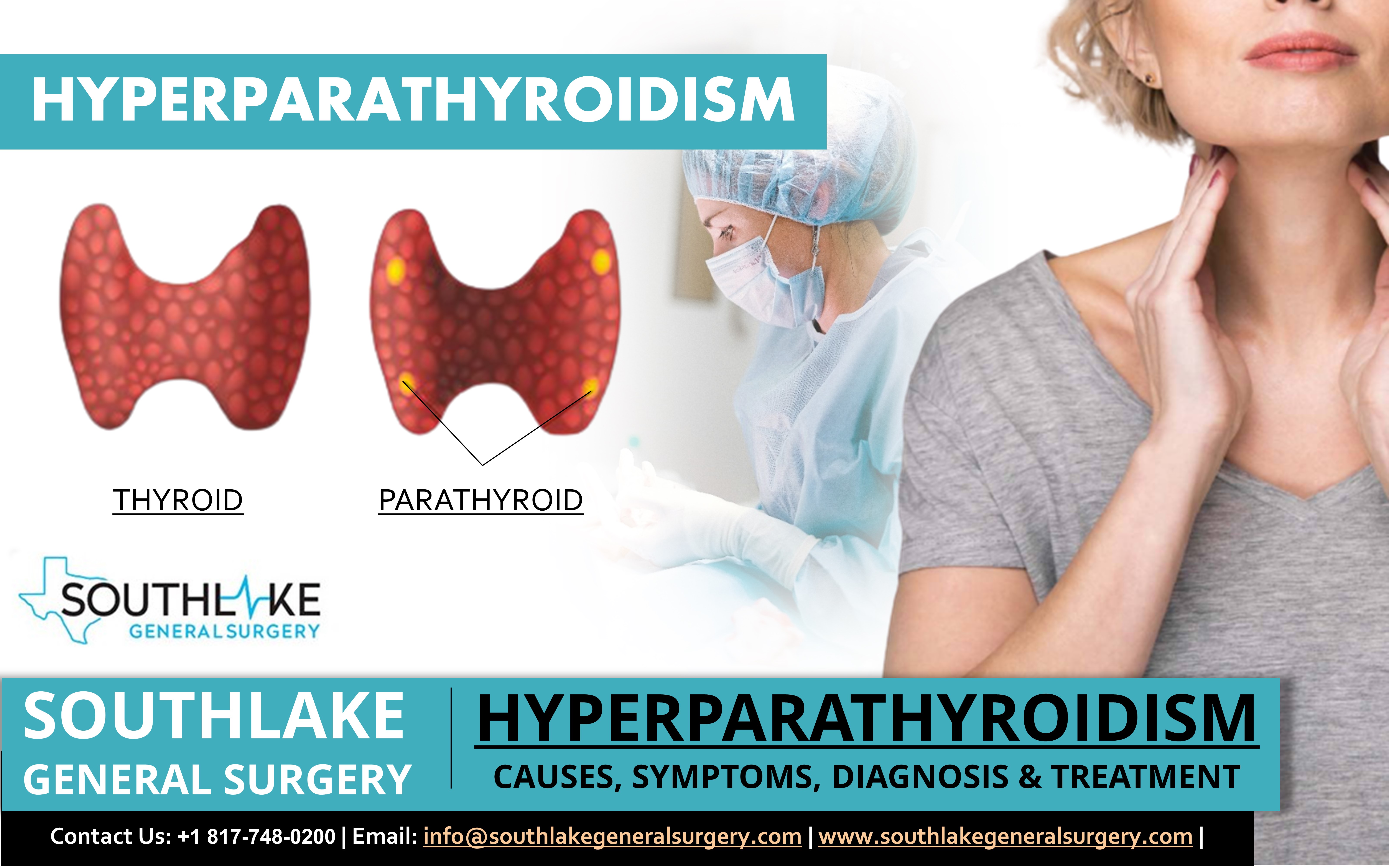Hyperparathyroidism is a condition when our body produces excess calcium in blood and tissues. Your body needs calcium, but a high level of calcium is not good for our body. It has no relevance to how much calcium you consume through dairy products.
Parathyroid are four glands located in the thyroid in our neck. The size of each gland is equal to a grain of rice. These glands produce hormones that maintain calcium levels in our body. If anyone of these glands produces excess hormone, this condition is known as hyperparathyroidism.
A parathyroid hormone can raise calcium levels in three ways. It can signal to your small intestines to retain more calcium into blood circulation, it can signal your bones to discharge calcium, or it can signal kidneys to hold more calcium instead of releasing it out from the body through urine.
In the United States, about 100,000 individuals with the age group of 50 and above along with women are more likely to develop hyperparathyroidism.
Types of Hyperparathyroidism
In our body, two types of hyperparathyroidism are found: Primary & Secondary
Primary Hyperthyroidism
This implies that your condition is brought about by one of the parathyroid glands normally going over the top with the hormone that maintains calcium levels in our body.
Secondary Hyperthyroidism
This implies that another illness or condition is at fault. The common cause for secondary hyperthyroidism is low levels of calcium in the blood that can prompt your body to discharge parathyroid hormone quickly.
What are the causes of Hyperthyroidism?
The reasons for primary hyperthyroidism include:
- At least two of the glands being excessively active and generating a lot of the parathyroid hormone.
- A noncancerous tumor affecting one of the parathyroid glands.
- Cancer in one of the parathyroid glands. It is a very rare condition.
The causes of secondary hyperthyroidism include:
- When your body doesn’t produce an ample amount of calcium and it remains low in the blood. This also leads to a low level of vitamin D, or the digestive system may have issues in absorbing calcium. This condition may also occur due to kidney disease.
- A very low level of vitamin D in the body. To balance the calcium in the blood vitamin D plays an important role and helps the digestive system to absorb calcium.
What are the symptoms of Hyperthyroidism?
Primary hyperthyroidism may not have any symptoms. In case, any individual has any symptoms, it will not serious. Primary hyperthyroidism symptoms include:
- Weak muscles, fatigue, depression, or feeling sleepy
- Joint and bones pain
In case, an individual has a more serious type of primary hyperthyroidism and increases the level of calcium. The symptoms can include:
- Nausea and vomiting
- Constipation
- Lack of appetite,
- Feeling thirsty than usual
- Frequent pee than usual
- Not able to concentrate or memory loss
- Pain on one section of the lower abdomen (if there are kidney stones)
Diagnosis of Hyperthyroidism
According to Dr. Valeria Simone MD, Southlake General Surgery, Texas, diagnosis of hyperthyroidism can be performed through blood tests.
If the blood test shows high levels of parathyroid hormone and of calcium, this is a primary hyperthyroidism condition. The doctor can prescribe for:
- X-rays to examine the broken bones in your body.
- To decrease bone mineral density a bone density test is recommended mainly in the forearm.
- Ultrasound for the kidney to check for kidney stones
- Urine calcium collection for 24 hours to look for kidney problems.
Your blood tests can help identify the kidney functionality, level of vitamin D and phosphate that can propose secondary hyperthyroidism.
Treatment of Hyperthyroidism
Treatment of hyperthyroidism at Southlake General Surgery, Texas is performed under the supervision of experienced general surgeon Dr. Valeria Simone MD.
In case, an individual is experiencing secondary hyperparathyroidism, the PCP might suggest supplements of vitamin D and calcium
If an individual is experiencing primary hyperparathyroidism along with serious complications or doesn’t have symptoms. The doctor will recommend parathyroid surgery at Southlake General Surgery, Texas to eliminate the overactive glands or parathyroid glands.
Let’s take an example, if an individual has a high level of calcium in the blood, has kidney stones, or experiencing multiple fractures, the doctor will recommend surgery.
Benefits of Parathyroid Surgery:
- Reduce bone fractures
- Increase the bone density
- Decrease the possibility of formation of kidney stones
Surgical procedure fixes primary hyperparathyroidism in 95% of cases. Consult with an experienced general surgeon who has experience in parathyroid surgery. Like any surgical procedure, there can be complexities, so consult with your primary care physician about the risk, advantages, recovery time after parathyroid surgery, and hospital stay after surgery.
Hyperparathyroidism treatment without surgery
If your doctor decides to treat the hyperthyroidism without surgery, then an individual can:
- Keep track of Vitamin D and calcium through a daily diet. In any case, don’t reduce calcium intake without the doctor’s consultation and get in touch with your doctor for supplements if required.
- Exercise daily to strengthen your bones as recommends by the doctor.
- Take ample liquid especially water to avoid kidney stones.
- Don’t smoke as it will impact your bones.
- Consult with your doctor if you are taking any medicines since it might reduce the level of calcium.
For more information on Hyperthyroidism – causes, symptoms, diagnosis, treatment, surgery, or consultation with Dr. Valeria Simone MD. Please contact our healthcare expert today at +1 (817) 748-0200.
To Make an Online Appointment. Click Here
Follow us on Facebook.

